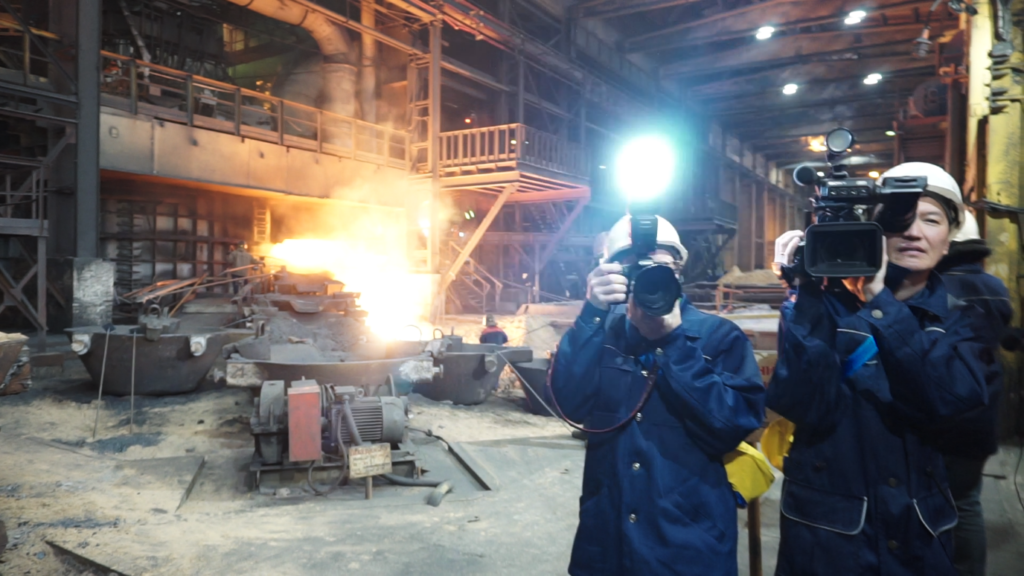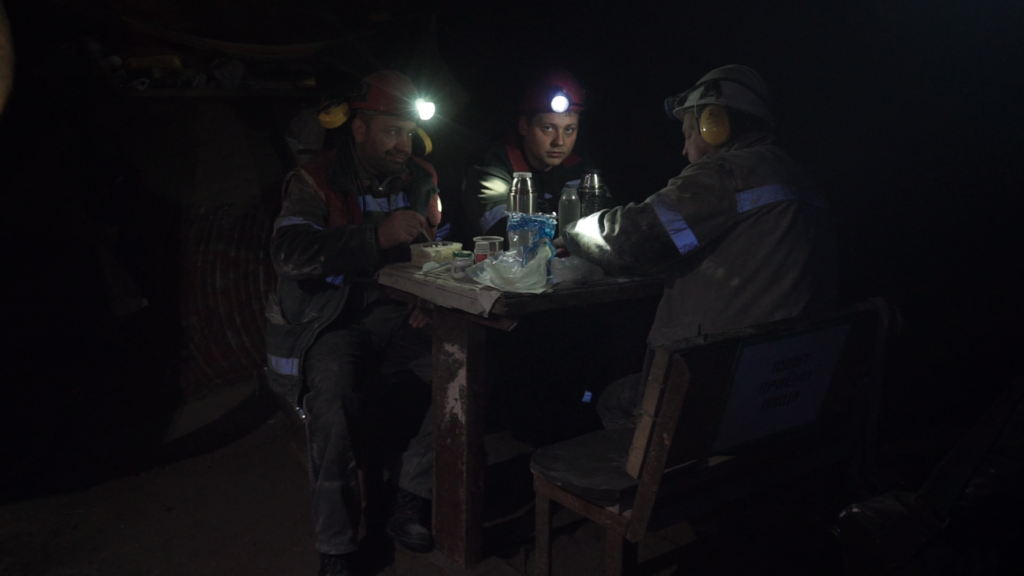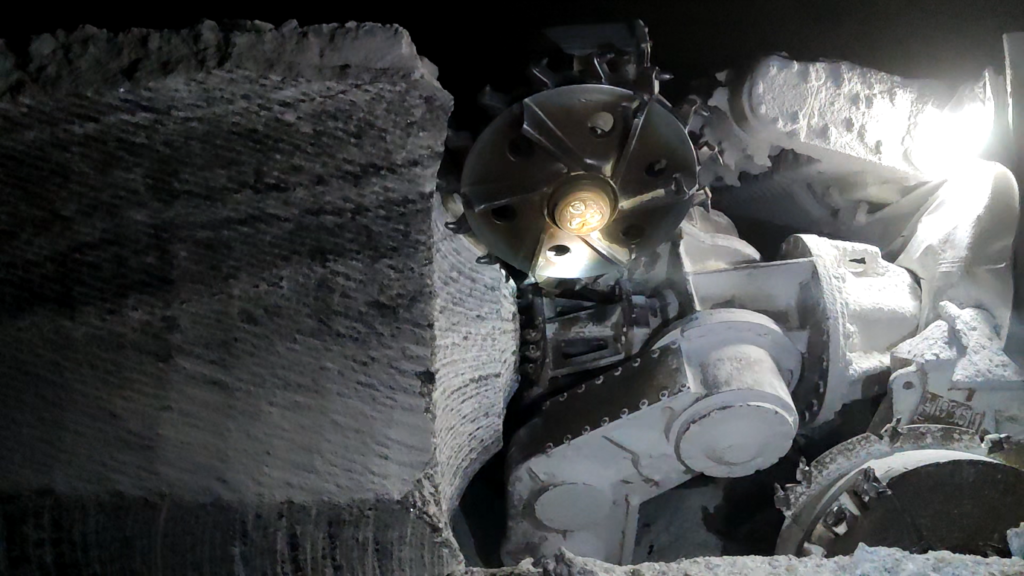Both Ears to the Ground (2021)
Naïmé Perrette’s Both Ears to the Ground (2021, 29 min.) is an essay film shot in Berezniki. The mining city in the Urals was built on salt mines, and became infamous because of the sinkholes they caused. Both Ears to the Ground is a collection of voices revolving around these events. It displays a series of encounters in this city where industry is intermingled with the local culture. Sinkholes are a combination of human and natural processes, a rapid breaking point of slow movements happening out of sight, a conflict between spectacular occurrences and invisible dynamics. That very invisibility triggers the question of belief and trust: every person must decide where to place their faith.

“Perrette’s film, however, doesn’t indulge the viewer with more sensationalist shots of the fateful chasms. Berezniki’s citizens don’t care about the sinkholes, and are sick and tired of journalists and film crews asking about them. Instead, Both Ears to the Ground is framed as an investigation into how these disasters have been reported and depicted, and how the citizens are seeking to image their own future, beyond enticing narratives of impending doom. This careful approach seems to have gained Perrette a certain trust among the city’s inhabitants. She gets access, for example, to film in one of the potash mines beneath the city. Proud miners show a vast, white cavern deep in the mountain, its walls covered with ornament-like traces from the excavation process. An enormous mining drill determinedly burrows its way through salt deposits. The driver of the machine appears slightly bewildered by the attention and explains that he likes to advance, to go forward.”
Kim West


Naïmé Perrette (France, 1989) creates multi-layer spaces that explore human relations to their social and geographical environments, using video, digital collages and installations. In her works, she has engaged with the role of labour in the construction of young adult identity, and with the way societies map, consider and act on their territories, offering insights into their underlying values. Perrette lives and works in Brussels.